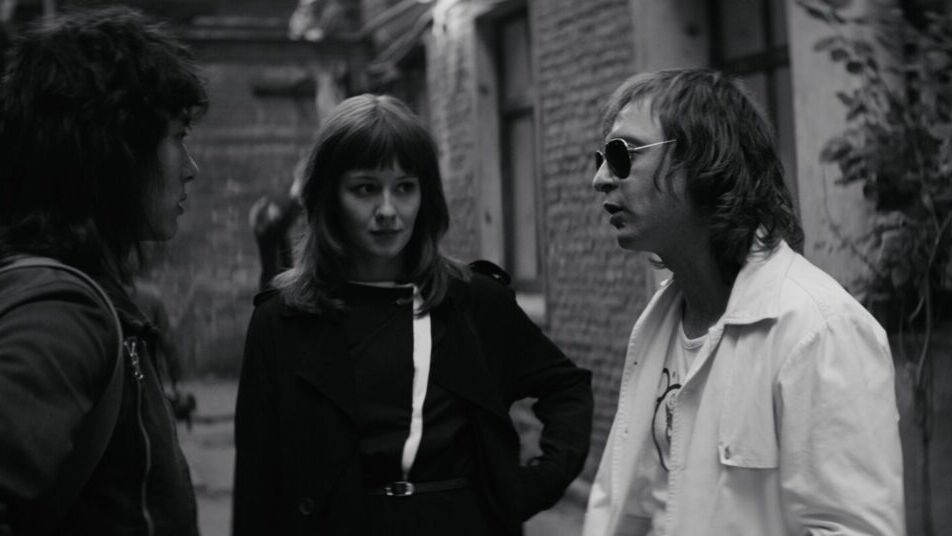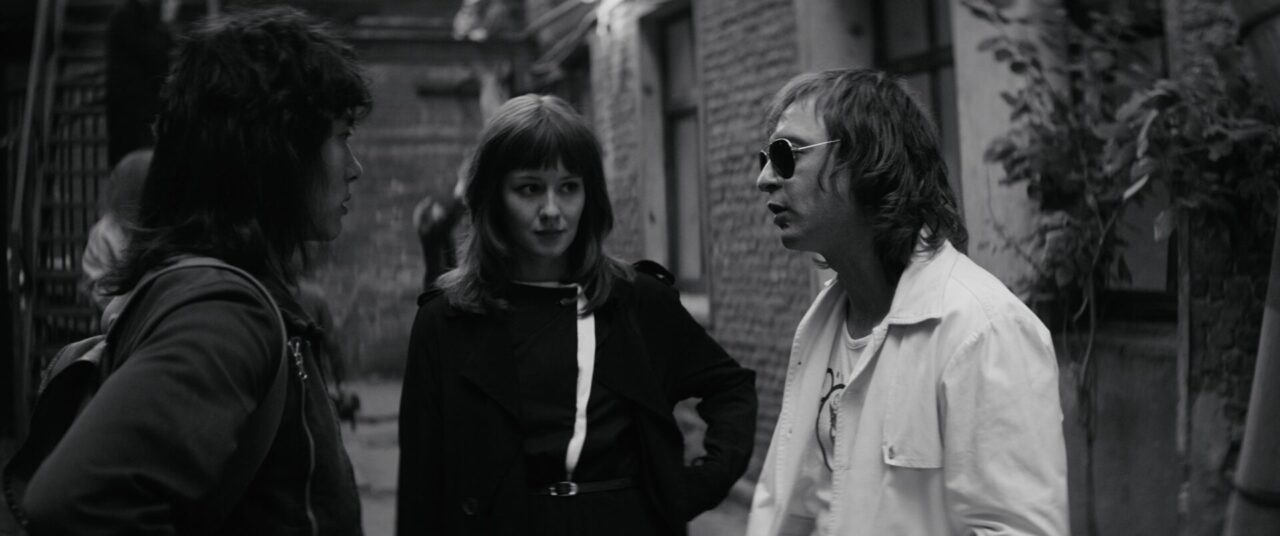LETO (2018)
Starring Teo Yoo, Irina Starshenbaum, Roman Bilyk
Directed by Kirill Serebrennikov
Written by Mikhail Idov, Lily Idova, Kirill Serebrennikov
Distributed by Gunpowder & Sky. 126 minutes. Opening this Friday at Laemmle’s Ahrya Fine Arts Theatre.
If the thought of older American generations shaking their heads in disapproval at rock & roll corrupting the youth sounds restrictive, think about how the new sound and scene must have been received by countries who don’t practice democracy. To these hard-clamped oppressive states, the likes of David Bowie, Talking Heads, and The Velvet Underground weren’t just a bunch of distasteful degenerates– they were the very threat to their nation’s politics and identity.
Although rock music may evoke images of uninspired and detached long-haired rockers, it was still the music that artists sought to create. The new, explosive energy and creativity which deviated from all prior norms is the story of rock & roll. This is the story of Leto.
Set in the late eighties, Leningrad, Leto (meaning “summer”) captures the time when Western rock inspired a new sort of Russian youth, following the people who forged a new slacker identity amidst their hammer and sickle party. Leto follows shades-wearing Mayk (Roman Billy), the unofficial ambassador to this new sound and look for Russian rockers: not only does he front his own rock band and smuggle in vinyl pressings of the latest Blondie and T. Rex albums, but he’s the unofficial middle-man between the rocker and the statesman, mediating with local theater owners and officials in order to get their music approved so as to be played to a (seated) audience.
Photographed in black and white, the camera of Leto floats through various locations, bringing enough dreaminess that feels both immediate and fantasy-like that it channels the visual stylings of last year’s memory palace movie Roma. It’s coincidental then that, like Roma, Leto is a piece that also attempts to channel the spirits of real-life people, as the film’s director Kirill Serebrennikov based certain characters on people from Russian history.
For being a film about the arrival of rock and roll in Communist Russia, the film wonderfully channels the same rebellious spirit of rock, as far as not being afraid to not conform to one single idea. A Palme d’Or nominee at 2018’s Cannes Film Festival, Leto is largely devoid of a plot, save for the arrival of a new guitar-strapped rocker Viktor (Teo Yoo) who Mayk takes under his wing and mentors, all while his wife Natasha (Irina Starshenbaum) looks upon the new lad with interest. But what Leto does receive in turn is freedom, re-creating a time and energy that dips into stylistic swerves whenever the inspiration strikes. The film does randomly launch into reality-detaching musical moments such as when a full staging of Talking Heads’ “Psycho Killer” naturally becomes a part of a scene, similar to how any musical moment might arise in Across the Universe. And yet these are among the best moments in the movie (Leto won the Cannes Soundtrack Award).
To this end, the mash-up of genres with clashes of form and ideas fits its overall theme – that being about identity crisis. Some might find Leto‘s construction a bit too loose and inconsistently built. But along with its aesthetic eye, fantastically rocking music, and freedom to take chances whenever it wishes to, the film plays to its most inspired strengths to inspire future rock and rollers.
Ryan Rojas
Ryan is the editorial manager of Cinemacy, which he co-runs with his older sister, Morgan. Ryan is a member of the Hollywood Critics Association. Ryan's favorite films include 2001: A Space Odyssey, The Social Network, and The Master.


